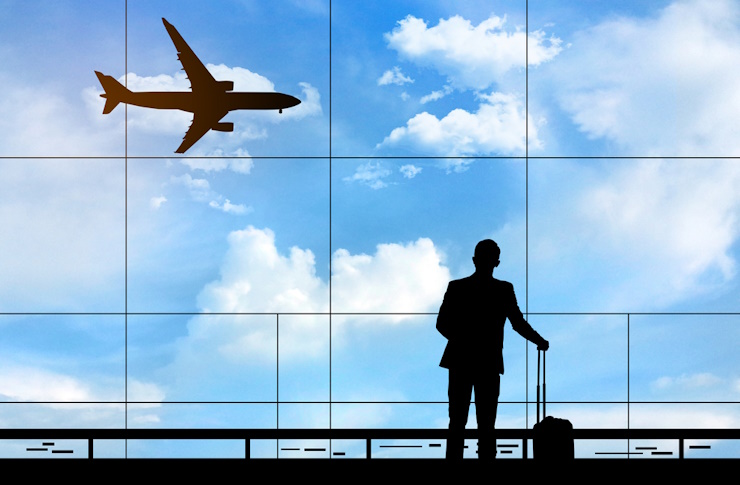Essential Airline Baggage Tips Every Traveler Should Know
Airline baggage tips can help make travel smoother and stress-free. From understanding weight limits and carry-on rules to packing smart and avoiding extra fees, these practical suggestions ensure you stay organized and prepared, making your journey more comfortable from start to finish.

Understanding Airline Baggage Weight and Size Restrictions
Airlines enforce strict baggage limitations to maintain aircraft safety and operational efficiency. Domestic carriers typically allow carry-on bags measuring 22 x 14 x 9 inches, while checked baggage often cannot exceed 62 linear inches total. Weight restrictions commonly range from 50 pounds for standard checked bags to 15-25 pounds for carry-on luggage, depending on your airline and destination.
International flights frequently have different requirements, with some carriers offering more generous allowances for long-haul routes. Budget airlines often charge for all baggage services, while full-service carriers may include one checked bag in ticket prices. Always verify specific restrictions during booking, as oversized or overweight baggage can result in substantial fees at the airport.
Essential Airline Baggage Tips for Travelers
Smart packing strategies help maximize your baggage allowance while minimizing complications. Distribute weight evenly between checked and carry-on bags, keeping essential items and valuables in your cabin luggage. Pack heavier items like shoes and books in checked baggage, reserving carry-on space for electronics, medications, and travel documents.
Consider wearing your heaviest clothing items during travel to reduce luggage weight. Rolling clothes instead of folding creates more space, while compression packing cubes help organize belongings efficiently. Leave room for souvenirs by packing slightly under weight limits, and always have backup plans for items that might not fit in overhead compartments on smaller aircraft.
Airline Baggage Security and Safety Tips
Airport security screening requires specific preparation to avoid delays and complications. Keep liquids in containers of 3.1 ounces or smaller, stored in clear quart-sized bags for easy inspection. Electronics larger than cell phones must be removed from carry-on bags during screening, so pack them in easily accessible compartments.
Prohibited items vary between carry-on and checked baggage, with sharp objects, flammable materials, and certain sporting goods restricted from cabin storage. Research Transportation Security Administration guidelines before packing, as rules change periodically. Consider shipping valuable or questionable items separately rather than risking confiscation at security checkpoints.
Protecting Your Luggage During Transit
Safeguarding belongings requires proactive measures throughout your journey. Use TSA-approved locks for checked baggage, understanding that security personnel may cut locks if inspection is necessary. Attach identification tags both externally and internally, including contact information and destination details in case external tags are lost.
Take photographs of your packed luggage contents and note serial numbers for valuable electronics. Consider luggage insurance for expensive items, and never pack irreplaceable documents or medications in checked bags. Distinctive luggage tags or ribbons help identify your bags quickly on crowded baggage carousels.
| Airline | Carry-On Fee | First Checked Bag Fee | Weight Limit |
|---|---|---|---|
| American Airlines | Free | $30-35 | 50 lbs |
| Delta Air Lines | Free | $30-35 | 50 lbs |
| Southwest Airlines | Free | Free (first two bags) | 50 lbs |
| Spirit Airlines | $26-65 | $30-50 | 40 lbs |
| JetBlue Airways | Free | $30-35 | 50 lbs |
Prices, rates, or cost estimates mentioned in this article are based on the latest available information but may change over time. Independent research is advised before making financial decisions.
Dealing with Lost or Delayed Baggage
Airlines mishandle millions of bags annually, making contingency planning crucial for travelers. Report missing luggage immediately at the baggage service office before leaving the airport, obtaining written documentation of your claim. Most airlines provide compensation for essential items during delays, though policies vary significantly between carriers.
Keep receipts for reasonable expenses incurred due to baggage delays, as airlines typically reimburse necessities like toiletries and clothing. Track your baggage claim through airline websites or mobile apps, which provide real-time updates on recovery efforts. Consider packing essential items for 24-48 hours in your carry-on bag as insurance against checked baggage delays.
Effective baggage management enhances travel experiences while reducing stress and unexpected expenses. Understanding airline policies, security requirements, and protective measures helps ensure your belongings arrive safely at your destination. Preparation and awareness of baggage fees enable better travel budgeting and smoother airport navigation for future trips.




